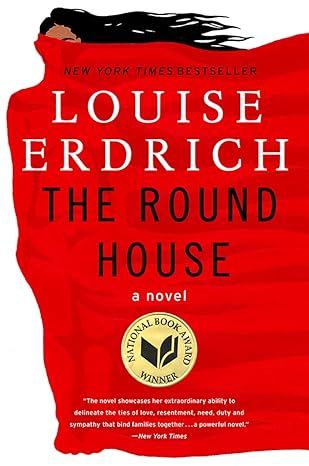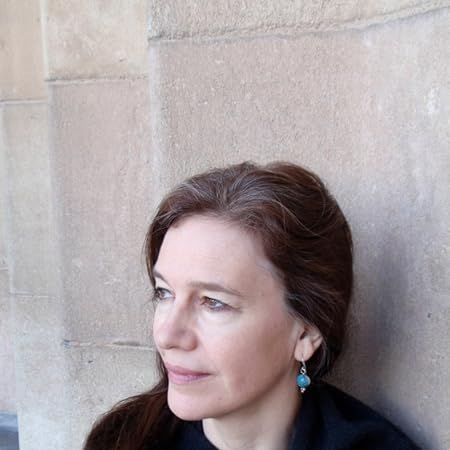The Round House: A NovelAudiobook
4.3
-
12,057 ratings
One of The Atlantic’s Great American Novels
Winner of the National Book Award • Washington Post Best Book of the Year • A New York Times Notable Book
From one of the most revered novelists of our time, an exquisitely told story of a boy on the cusp of manhood who seeks justice and understanding in the wake of a terrible crime that upends and forever transforms his family.
One Sunday in the spring of 1988, a woman living on a reservation in North Dakota is attacked. The details of the crime are slow to surface because Geraldine Coutts is traumatized and reluctant to relive or reveal what happened, either to the police or to her husband, Bazil, and thirteen-year-old son, Joe. In one day, Joe's life is irrevocably transformed. He tries to heal his mother, but she will not leave her bed and slips into an abyss of solitude. Increasingly alone, Joe finds himself thrust prematurely into an adult world for which he is ill prepared.
While his father, a tribal judge, endeavors to wrest justice from a situation that defies his efforts, Joe becomes frustrated with the official investigation and sets out with his trusted friends, Cappy, Zack, and Angus, to get some answers of his own. Their quest takes them first to the Round House, a sacred space and place of worship for the Ojibwe. And this is only the beginning.
The Round House is a page-turning masterpiece—at once a powerful coming-of-age story, a mystery, and a tender, moving novel of family, history, and culture.
Kindle
$14.99
Available instantly
Audiobook
$0.00
with membership trial
Hardcover
$16.99
Paperback
$11.98
Ships from
Amazon.com
Payment
Secure transaction
ISBN-10
0062065254
ISBN-13
978-0062065254
Print length
336 pages
Language
English
Publisher
Harper Perennial
Publication date
September 23, 2013
Dimensions
0.9 x 5.3 x 7.9 inches
Item weight
9.6 ounces
Popular Highlights in this book
The only thing that God can do, and does all of the time, is to draw good from any evil situation.
Highlighted by 3,031 Kindle readers
I stood there in the shadowed doorway thinking with my tears. Yes, tears can be thoughts, why not?
Highlighted by 1,823 Kindle readers
The only thing that God can do, and does all of the time, is to draw good from any evil situation.
Highlighted by 1,738 Kindle readers
I had entered that furrow of remorse—planted with the seeds of resentment—peculiar to young men.
Highlighted by 1,524 Kindle readers
Product details
ASIN :
0062065254
File size :
2914 KB
Text-to-speech :
Enabled
Screen reader :
Supported
Enhanced typesetting :
Enabled
X-Ray :
Not Enabled
Word wise :
Enabled
Award winners:
Editorial reviews
“Wise and suspenseful…Erdrich’s voice as well as her powers of insight and imagination fully infuse this novel…She writes so perceptively and brilliantly about the adolescent passion for justice that one is transported northward to her home territory.” — Elizabeth Taylor, Chicago Tribune
“Erdrich has given us a multitude of narrative voices and stories. Never before has she given us a novel with a single narrative voice so smart, rich and full of surprises as she has in The Round House…and, I would argue, her best so far.” — NPR/All Thing's Considered
“THE ROUND HOUSE is filled with stunning language that recalls shades of Faulkner, García Márquez and Toni Morrison. Deeply moving, this novel ranks among Erdrich’s best work, and it is impossible to forget.” — USA Today
“Emotionally compelling…Joe is an incredibly endearing narrator, full of urgency and radiant candor…the story he tells transforms a sad, isolated crime into a revelation about how maturity alters our relationship with our parents, delivering us into new kinds of love and pain.” — Ron Charles, Washington Post
“The novel showcases her [Erdrich’s] extraordinary ability to delineate the ties of love, resentment, need, duty and sympathy that bind families together…[a] powerful novel.” — Michiko Kakutani, New York Times
“A gripping mystery with a moral twist: Revenge might be the harshest punishment, but only for the victims. A-” — Entertainment Weekly
“Moving, complex, and surprisingly uplifting…likely to be dubbed the Native American TO KILL A MOCKINGBIRD” — Parade, Fall's Best Books
“Erdrich never shields the reader or Joe from the truth…She writes simply, without flourish.” — Philadelphia Inquirer
“An artfully balanced mystery, thriller and coming-of-age story…this novel will have you reading at warp speed to see what happens next.” — Minneapolis Star Tribune
“Erdrich’s bittersweet contemplation of love and friendship, morality and generativity…result in a tender, tough coming-of-age tale.” — Cleveland Plain Dealer
“A powerful human story…By boring deeply into one person’s darkest episode, Erdrich hits the bedrock truth about a whole community.” — New York Times Book Review
“Haunting…a bittersweet coming-of-age tale…tender but unsentimental and buoyed by subtle wit” — People
“THE ROUND HOUSE is a stunning piece of architecture. It is carefully, lovingly, disarmingly constructed. Even the digressions demand strict attention.” — Newsday
“One of the most pleasurable aspects of Erdrich’s writing…is that while her narratives are loose and sprawling, the language is always tight and poetically compressed…In the end there’s nothing, not the arresting plot or the shocking ending of THE ROUND HOUSE, that resonates as much as the characters.” — San Francisco Chronicle
“Joe may be one of Erdrich’s best-drawn characters; he’s conflicted, feisty one moment, scared and disappointed the next. THE ROUND HOUSE will inevitably draw comparisons to Harper Lee’s TO KILL A MOCKINGBIRD…” — Miami Herald
“A sweeping, suspenseful outing from this prizewinning, generation-spanning chronicler of her Native American people, the Ojibwe of the northern plains...a sumptuous tale.” — Elle
“Erdrich threads a gripping mystery and multilayered portrait of a community through a deeply affecting coming-of-age novel.” — Karen Holt, O, the Oprah Magazine
“A stunning and devastating tale of hate crimes and vengeance…Erdrich covers a vast spectrum of history, cruel loss, and bracing realizations. A preeminent tale in an essential American saga.” — Donna Seaman, Booklist, Starred Review of THE ROUND HOUSE
“The story pulses with urgency as she [Erdrich] probes the moral and legal ramifications of a terrible act of violence.” — Publishers Weekly, Starred Review of THE ROUND HOUSE
“Erdrich skillfully makes Joe’s coming-of-age both universal and specific…the story is also ripe with detail about reservation life, and with her rich cast of characters, Erdrich provides flavor, humor and depth. Joe’s relationship with his father, Bazil, a judge, has echoes of TO KILL A MOCKINGBIRD.” — Library Journal, Starred Review of THE ROUND HOUSE
“Riveting…One of Erdrich’s most suspenseful novels.... It vividly portrays both the deep tragedy and crazy comedy of life.” — BookPage, Cover/Feature Review
“Each new Erdrich novel adds new layers of pathos and comedy, earthiness and spiritual questing, to her priceless multigenerational drama. THE ROUND HOUSE is one of her best -- concentrated, suspenseful, and morally profound.” — Jane Ciabattari, Boston Globe
“Louise Erdrich’s prose is spare, precise, smooth as polished stone. Her books are rich with literary muscle.” -Austin American-Statesman — Austin American-Statesman
“The story draws the reader unstoppably page by page.” — Seattle Times
“While Erdrich is known as a brilliant chronicler of the American Indian experience, her insights into our family, community, and spiritual lives transcend any category.” — Reader's Digest
“Poignant and surprisingly funny, it’s the acclaimed writer’s best book yet.” — O, the Oprah Magazine, "Our Favorite Reads of 2012"
Read more
Sample
Chapter One
1988
Small trees had attacked my parents’ house at the foundation. They were just seedlings with one or two rigid, healthy leaves. Nevertheless, the stalky shoots had managed to squeeze through knife cracks in the decorative brown shingles covering the cement blocks. They had grown into the unseen wall and it was difficult to pry them loose. My father wiped his palm across his forehead and damned their toughness. I was using a rusted old dandelion fork with a splintered handle; he wielded a long, slim iron fireplace poker that was probably doing more harm than good. As my father prodded away blindly at the places where he sensed roots might have penetrated, he was surely making convenient holes in the mortar for next year’s seedlings.
Whenever I succeeded in working loose a tiny tree, I placed it like a trophy beside me on the narrow sidewalk that surrounded the house. There were ash shoots, elm, maple, box elder, even a good-sized catalpa, which my father placed in an ice cream bucket and watered, thinking that he might find a place to replant it. I thought it was a wonder the treelets had persisted through a North Dakota winter. They’d had water perhaps, but only feeble light and a few crumbs of earth. Yet each seed had managed to sink the hasp of a root deep and a probing tendril outward.
My father stood, stretching his sore back. That’s enough, he said, though he was usually a perfectionist.
I was unwilling to stop, however, and after he went into the house to phone my mother, who had gone to her office to pick up a file, I continued to pry at the hidden rootlings. He did not come back out and I thought he must have lain down for a nap, as he did now sometimes. You would think then that I would have stopped, a thirteen-year-old boy with better things to do, but on the contrary. As the afternoon passed and everything on the reservation grew quiet and hushed, it seemed increasingly important to me that each one of these invaders be removed down to the very tip of the root, where all the vital growth was concentrated. And it seemed important as well that I do a meticulous job, as opposed to so many of my shoddily completed chores. Even now, I wonder at the steepness of my focus. I wedged my iron fork close as I could along the length of the twiglike sprout. Each little tree required its own singular strategy. It was almost impossible not to break off the plant before its roots could be drawn intact from their stubborn hiding place.
I quit at last, sneaked inside, and slipped into my father’s study. I took out the law book my father called The Bible. Felix S. Cohen’s Handbook of Federal Indian Law. It had been given to my father by his father; the rust red binding was scraped, the long spine cracked, and every page bore handwritten comments. I was trying to get used to the old-fashioned language and constant footnotes. Either my father or my grandfather had placed an exclamation point on page 38, beside the italicized case, which had naturally interested me also: United States v. Forty-three Gallons of Whiskey. I suppose one of them had thought that title was ridiculous, as I did. Nevertheless, I was parsing out the idea, established in other cases and reinforced in this one, that our treaties with the government were like treaties with foreign nations. That the grandeur and power my Mooshum talked about wasn’t entirely lost, as it was, at least to some degree I meant to know, still protected by the law.
I was reading and drinking a glass of cool water in the kitchen when my father came out of his nap and entered, disoriented and yawning. For all its importance Cohen’s Handbook was not a heavy book and when he appeared I drew it quickly onto my lap, under the table. My father licked his dry lips and cast about, searching for the smell of food perhaps, the sound of pots or the clinking of glasses, or footsteps. What he said then surprised me, although on the face of it his words seem slight.
Where is your mother?
His voice was hoarse and dry. I slid the book on to another chair, rose, and handed him my glass of water. He gulped it down. He didn’t say those words again, but the two of us stared at each other in a way that struck me somehow as adult, as though he knew that by reading his law book I had inserted myself into his world. His look persisted until I dropped my eyes. I had actually just turned thirteen. Two weeks ago, I’d been twelve.
At work? I said, to break his gaze. I had assumed that he knew where she was, that he’d got the information when he phoned. I knew she was not really at work. She had answered a telephone call and then told me that she was going in to her office to pick up a folder or two. A tribal enrollment specialist, she was probably mulling over some petition she’d been handed. She was the head of a department of one. It was a Sunday—thus the hush. The Sunday afternoon suspension. Even if she’d gone to her sister Clemence’s house to visit afterward, Mom would have returned by now to start dinner. We both knew that. Women don’t realize how much store men set on the regularity of their habits. We absorb their comings and goings into our bodies, their rhythms into our bones. Our pulse is set to theirs, and as always on a weekend afternoon we were waiting for my mother to start us ticking away on the evening.
And so, you see, her absence stopped time.
What should we do, we both said at once, which was again upsetting. But at least my father, seeing me unnerved, took charge.
Let’s go find her, he said. And even then as I threw on my jacket, I was glad that he was so definite—find her, not just look for her, not search. We would go out and find her.
The car’s had a flat, he declared. She probably drove someone home and the car’s had a flat. These damn roads. We’ll walk down and borrow your uncle’s car and go find her.
Find her, again. I strode along beside him. He was quick and still powerful once he got going.
He had become a lawyer, then a judge, and also married late in life. I was a surprise to my mother, too. My old Mooshum called me Oops; that was his nickname for me, and unfortunately others in the family found it funny. So I am sometimes called Oops to this very day. We went down the hill to my aunt and uncle’s house—a pale green HUD house sheltered by cottonwood and gentrified by three small blue spruce trees. Mooshum lived there too, in a timeless fog. We were all proud of his superlongevity. He was ancient, but still active in the upkeep of the yard. Each day, after his exertions outside, he lay by the window on a cot to rest, a pile of sticks, lightly dozing, sometimes emitting a dry, sputtering sound that was probably laughter.
When my father told Clemence and Edward that my mother had had a flat and we needed their car, as if he actually had knowledge of this mythical flat tire, I almost laughed. He seemed to have convinced himself of the truth of his speculation.
We backed down the gravel drive in my uncle’s Chevrolet and drove to the tribal offices. Circled the parking lot. Empty. Windows dark. As we came back out the entrance, we turned right.
She went to Hoopdance, I’ll bet, said my father. Needed something for dinner. Maybe she was going to surprise us, Joe.
I am the second Antone Bazil Coutts, but I’d fight anyone who put a junior in back of my name. Or a number. Or called me Bazil. I’d decided I was Joe when I was six. When I was eight, I realized that I’d chosen the name of my great-grandfather, Joseph. I knew him mainly as the author of inscriptions in books with amber pages and dry leather bindings. He’d passed down several shelves of these antiquities. I resented the fact that I didn’t have a brand-new name to distinguish me from the tedious Coutts line—responsible, upright, even offhandedly heroic men who drank quietly, smoked an occasional cigar, drove a sensible car, and only showed their mettle by marrying smarter women. I saw myself as different, though I didn’t know how yet. Even then, tamping down my anxiety as we went looking for my mother, who had gone to the grocery store—just that, surely, a little errand—I was aware that what was happening was in the nature of something unusual. A missing mother. A thing that didn’t happen to the son of a judge, even one who lived on a reservation. In a vague way, I hoped something was going to happen.
I was the sort of kid who spent a Sunday afternoon prying little trees out of the foundation of his parents’ house. I should have given in to the inevitable truth that this was the sort of person I would become, in the end, but I kept fighting it. Yet when I say that I wanted there to be something, I mean nothing bad, but something. A rare occurrence. A sighting. A bingo win, though Sunday was not a bingo day and it would have been completely out of character for my mother to play. That’s what I wanted, though, something out of the ordinary. Only that.
Halfway to Hoopdance, it occurred to me that the grocery store was closed on Sunday.
Of course it is! My father’s chin jutted, his hands tightened on the wheel. He had a profile that would look Indian on a movie poster, Roman on a coin. There was a classic stoicism in his heavy beak and jaw. He kept driving because, he said, she might have forgotten it was Sunday, too. Which was when we passed her. There! She whizzed by us in the other lane, riveted, driving over the speed limit, anxious to get back home to us. But here we were! We laughed at her set face as we did a U-turn there on the highway and followed her, eating her dust.
She’s mad, my father laughed, so relieved. See, I told you. She forgot. Went to the grocery and forgot it was closed. Mad now she wasted gas. Oh, Geraldine!
There was amusement, adoration, amazement in his voice when he said those words. Oh, Geraldine! Just from those two words, it was clear that he was and had always been in love with my mother. He had never stopped being grateful that she had married him and right afterward given him a son, when he’d come to believe he was the end of the line.
Oh, Geraldine.
He shook his head, smiling as we drove along, and everything was all right, more than all right. We could now admit we had been worried by my mother’s uncharacteristic absence. We could be jolted into a fresh awareness of how we valued the sanctity of small routine. Wild though I saw myself in the mirror, in my thoughts, I valued such ordinary pleasures.
So it was our turn, then, to worry her. Just a little, said my father, just to let her in for a taste of her own medicine. We took our time bringing the car back to Clemence’s house and walked up the hill, anticipating my mother’s indignant question, Where were you? I could just see her hands knuckled on her hips. Her smile twitching to jump from behind her frown. She’d laugh when she heard the story.
We walked up the dirt driveway. Alongside it in a strict row, Mom had planted the pansy seedlings she’d grown in paper milk cartons. She’d put them out early. The only flower that could stand a frost. As we came up the drive we saw that she was still in the car. Sitting in the driver’s seat before the blank wall of the garage door. My father started running. I could see it too in the set of her body—something fixed, rigid, wrong. When he got to the car, he opened the driver’s side door. Her hands were clenched on the wheel and she was staring blindly ahead, as she had been when we passed her going the opposite way on the road to Hoopdance. We’d seen her intent stare and we’d laughed then. She’s mad at the wasted gas!
I was just behind my father. Careful even then to step over the scalloped pansy leaves and buds. He put his hands on hers and carefully pried her fingers off the steering wheel. Cradling her elbows, he lifted her from the car and supported her as she shifted toward him, still bent in the shape of the car seat. She slumped against him, stared past me. There was vomit down the front of her dress and, soaking her skirt and soaking the gray cloth of the car seat, her dark blood.
Go down to Clemence, said my father. Go down there and say I am taking your mother straight to the Hoopdance Emergency. Tell them to follow.
With one hand, he opened the door to the backseat and then, as though they were dancing in some awful way, he maneuvered Mom to the edge of the seat and very slowly laid her back. Helped her turn over on her side. She was silent, though now she moistened her cracked, bleeding lips with the tip of her tongue. I saw her blink, a little frown. Her face was beginning to swell. I went around to the other side and got in with her. I lifted her head and slid my leg underneath. I sat with her, holding my arm over her shoulder. She vibrated with a steady shudder, like a switch had been flipped inside. A strong smell rose from her, the vomit and something else, like gas or kerosene.
I’ll drop you off down there, my father said, backing out, the car tires screeching.
No, I’m coming too. I’ve got to hold on to her. We’ll call from the hospital.
I had almost never challenged my father in word or deed. But it didn’t even register between us. There had already been that look, odd, as if between two grown men, and I had not been ready. Which didn’t matter. I was holding my mother tightly now in the backseat of the car. Her blood was on me. I reached onto the back window ledge and pulled down the old plaid quilt we kept there. She was shaking so bad I was scared she would fly apart.
Hurry, Dad.
All right, he said.
And then we flew there. He had the car up past ninety. We just flew.
My father had a voice that could thunder out; it was said he had developed this. It was not a thing he’d had in his youth, but he’d had to use it in the courtroom. His voice did thunder out and fill the Emergency entrance. Once the attendants had my mother on a gurney, my father told me to call Clemence. Then wait. Now that his anger was the thing filling the air, crackling clean, I was better. Whatever had happened would be fixed. Because of his fury. Which was a rare thing and got results. He held my mother’s hand as they wheeled her into the emergency ward. The doors closed behind them.
I sat down in a chair of orange molded plastic. A skinny pregnant woman had walked past the open car door, eyeing my mother, taking it all in before she registered herself. She slumped down next to a quiet old woman, across from me, and picked up an old People magazine.
Don’t you Indians have your own hospital over there? Aren’t you building a new one?
The emergency room’s under construction, I told her.
Still, she said.
Still what? I made my voice grating and sarcastic. I was never like so many Indian boys, who’d look down quiet in their anger and say nothing. My mother had taught me different.
The pregnant woman pursed her lips and looked back at her magazine. The old woman was knitting the thumb of a mitten. I went over to the pay phone, but I didn’t have any money. I went to the nurse’s window, asked to use the phone. We were close enough for the call to be local, so the nurse let me use it. But there was no answer. So I knew my aunt had taken Edward up to adore the sacrament, which got them out of the house on Sunday nights. He said that while Clemence adored the sacrament, he meditated on how it could be possible that humans had evolved out of apes only to sit gaping at a round white cracker. Uncle Edward was a science teacher.
I sat back down in the waiting room, as far from the pregnant lady as I could get, but the room was very small, so that wasn’t far enough. She was thumbing through that magazine. Cher was on the cover. I could read the words beside Cher’s jaw: She’s made Moonstruck a megahit, her lover is 23 and she’s tough enough to say “mess with me and I’ll kill you.” But Cher did not look tough. She looked like a surprised plastic doll. The bony, bulgey woman peeked around Cher and spoke to the knitting lady.
Looked like that poor woman had a miscarriage or maybe—her voice went sly—a rape.
The woman’s lip lifted up off her rabbit teeth as she looked at me. Her ratty yellow hair quivered. I looked right back, into her lashless hazel eyes. Then I did something odd by instinct. I went over and took the magazine out of her hands. Still staring at her, I tore off the cover and dropped the rest of the magazine. I ripped again. Cher’s identical eyebrows parted. The lady who was knitting pursed her lips, counting stitches. I gave the cover back and the woman accepted the pieces. Then suddenly I felt bad about Cher. What had she done to me? I got up and walked out the door.
I stood outside. I could hear the woman’s voice, raised, triumphant, complaining to the nurse. The sun was almost down. The air had gone cold, and with the darkness a stealthy chill entered me. I hopped up and down and swung my arms. I didn’t care what. I was not going back in until that woman was gone, or until my father came out and told me that my mother was all right. I could not stop thinking about what that woman had said. Those two words stabbed my thoughts, as she had meant them to do. Miscarriage. A word I didn’t altogether understand but knew had to do with babies. Which I knew were impossible. My mother had told me, six years before, when I’d pestered her for a brother, that the doctor had made sure that after me she could not get pregnant. It just could not happen. So that left the other word.
After a while, I saw a nurse take the pregnant lady back in through the emergency doors. I hoped they would not put her anywhere near my mother. I went in and again called my aunt, who said that she’d leave Edward to watch Mooshum and drive right over. She also asked me what had happened, what was wrong.
Mom’s bleeding, I said. My throat shut and I couldn’t say more.
She’s hurt? Was there an accident?
I got it out that I didn’t know and Clemence hung up. A poker-faced nurse came out and told me to go back to my mother. The nurse disapproved that my mother had asked for me. Insisted, she said. I wanted to run ahead, but I followed the nurse down a bright-lit hall, into a windowless room lined with green glass-fronted metal cabinets. The room had been dimmed and my mother was wearing a flimsy hospital gown. A sheet was tucked around her legs. There was no blood, anywhere. My father was standing at the head of her bed, his hand on the metal rail of the headboard. At first I didn’t look at him, just at her. My mother was a beautiful woman—that’s something I always knew. A given among family, among strangers. She and Clemence had coffee-cream skin and hot black glossy curls. Slim even after their children. Calm and direct, with take-charge eyes and movie-star lips. When overcome with laughter, they lost all dignity, however, and choked, snorted, burped, wheezed, even farted, which made them ever more hysterical. They usually sent each other into fits, but sometimes my father, too, could make them lose control. Even then, they were beautiful.
Now I saw my mother’s face puffed with welts and distorted to an ugly shape. She peered through slits in the swollen flesh of her lids.
What happened? I asked stupidly.
She didn’t answer. Tears leaked from the corners of her eyes. She blotted them away with a gauze-wrapped fist. I’m all right, Joe. Look at me. See?
And I looked at her. But she was not all right. There were scrapes of blows and the awful lopsidedness. Her skin had lost its normal warm color. It was gray as ash. Her lips were seamed with dried blood. The nurse came in, raised the end of the bed with a crank. Laid another blanket over her. I hung my head and leaned toward her. I tried to stroke her wrapped wrist and cold, dry fingertips. With a cry, she snatched her hand away as though I’d hurt her. She went rigid and closed her eyes. This action devastated me. I looked up at my father and he gestured for me to come to him. He put his arm around me, walked me out of the room.
She’s not all right, I said.
He looked down at his watch and then back at me. His face registered the humming rage of a man who couldn’t think fast enough.
She’s not all right. I spoke as if to tell him an urgent truth. And for a moment I thought he’d break. I could see something rising in him, but he conquered it, breathed out, and gathered himself.
Joe. He was looking strangely at his watch again. Joe, he said. Your mother was attacked.
We stood in the hallway together under patchy, buzzing, fluorescent lights. I said the first thing I thought of.
By who? Attacked by who?
Absurdly, we both realized that my father’s usual response would have been to correct my grammar. We looked at each other and he said nothing.
My father has the head, neck, and shoulders of a tall and powerful man, but the rest of him is perfectly average. Even a little clumsy and soft. If you think about it, this is a good physique to have as a judge. He looms imposingly seated at the bench, but when conferring in his chambers (a glorified broom closet) he is nonthreatening and people trust him. As well as thunderous, his voice is capable of every nuance, and sometimes very gentle. It was the gentleness in his voice now that scared me, and the softness. Almost a whisper.
She doesn’t know who the man was, Joe.
But will we find him? I asked in that same hushed voice.
We will find him, my father said.
And then what?
My father never shaved on Sundays, and a few tiny stubbles of gray beard showed. That thing in him was gathering again, ready to burst out. But instead he put his hands on my shoulders and spoke with that reedy softness that spooked me.
I can’t think that far ahead right now.
I put my hands on his hands and looked into his eyes. His leveling brown eyes. I wanted to know that whoever had attacked my mother would be found, punished, and killed. My father saw this. His fingers bit into my shoulders.
We’ll get him, I said quickly. I was fearful as I said this, dizzy.
Yes.
He took his hands away. Yes, he said again. He tapped his watch, bit down on his lip. Now if the police would come. They need to get a statement. They should have been here.
We turned to go back to the room.
Which police? I asked.
Exactly, he said.
Read more
About the authors
Louise Erdrich
Louise Erdrich is one of the most gifted, prolific, and challenging of American novelists. Her fiction reflects aspects of her mixed heritage: German through her father, and French and Ojibwa through her mother. She is the author of many novels, the first of which, Love Medicine, won the National Book Critics Circle Award and the last of which, The Round House, won the National Book Award for Fiction in 2012. She lives in Minnesota.
Read more
Reviews
Customer reviews
4.3 out of 5
12,057 global ratings
Mary Jane Koch
5
American Founder Aggressive
Reviewed in the United States on August 14, 2024
Verified Purchase
The writer brought me right into the characters stories. The Priest played an amusing teenage side. The main character families grief was heart felt. You got the sense of res community. But at the same time not. And as the main Character challenges his father “why do you do this?” I loved his father’s answer. I can say more but don’t want to give away. An excellent read!
Read more
Mary Whipple
5
"My father read local history, `and the white man appeared and drove them down into the earth'...an observation of the truth."
Reviewed in the United States on November 9, 2012
Verified Purchase
Author Louise Erdrich, a member of the Chippewa (Ojibwa) nation, here writes one of her most powerful and emotionally involving novels. Though it starts as a crime story on the reservation, it quickly becomes an intense search for justice on all levels. It is also an examination of the lives of her characters, both old and young, as they face the challenges of reservation life. Their lives, as she shows in this novel, are seriously restricted by 1988, when this novel's action takes place, and any Native American who wants to honor the "old ways" on the reservation must now survive on infertile lands which cannot support him. Their culture has been seriously compromised by the arrival of Catholic missionaries who have weaned them away from their myths and traditions. Significantly, legal jurisdiction over crimes involving Native Americans now involves tribal officials, state police, and even the FBI.
In a powerful opening scene, filled with symbols and portents, thirteen-year-old Antone Basil Coutts (Joe), only child and namesake of Judge Coutts and his wife Geraldine, is helping his father to pull tiny seedlings from cracks in the foundation of their house, awaiting Geraldine's return from her office. When she finally arrives at home, she is almost unrecognizable, so badly beaten she can hardly see, reeking of gasoline and so traumatized by rape and other crimes that she has become mute. Young Joe knows that it will be up to him and his father to identify who has done this. They begin to study his father's old cases searching clues.
Joe is still a child, however, and though his empathetic father wants to protect him as much as possible, Joe becomes obsessed with getting his mother "back," determined to find and punish the rapist on his own. These tensions add drama and meaning to the novel, and Joe's contacts with others, both in his family and outside it, expand the scope. The sweat lodge ceremony is described, the extortion of elderly Indians by a white-owned supermarket on Indian land is detailed, the raucous and sexy (and hilarious) talk of elderly family members is recorded, the "flirting" of a stripper living with Joe's uncle is tension-filled and emotional, the appearance of ghosts to Joe, and the efforts of a local priest, a former soldier injured in Lebanon in 1983, are all described to powerful effect, keeping the interest and involvement of the reader at high pitch.
As in her other novels, Erdrich provides a sense of continuity by including characters from other books in this one - including the priestly Nanapush (from Tracks), who was an inspiration to Mooshum, thought now to be one hundred six years old in this novel. Mooshum, whose story is told here, was also a main character in The Plague of Doves, a book which also includes Judge Antone Basil Coutts, father of this novel's main character Joe, and Corwin Peace, father of Joe's friend Zach. By repeating these characters through successive generations, Erdrich provides a genealogy and sense of history which add to the sense of time and place, and highlight the changes, not all of them good, taking place within the community. The novel, one of Erdrich's best, will keep serious readers totally engaged with its sensitive descriptions and insights, even as those interested in just a "good story" will celebrate the action, excitement, and the issues it raises.
Read more
132 people found this helpful
Amazon Customer
5
A great story
Reviewed in the United States on June 26, 2024
Verified Purchase
Easy to read a good writer to follow
Jono Walker
5
Crime and Punishment on the Reservation
Reviewed in the United States on December 3, 2012
Verified Purchase
On the surface The Round House is a wild-West sized crime thriller that takes place on an American Indian reservation somewhere in the Dakotas. Moving with the hero as he struggles to discover the evil perpetrator and attain a just (or unjust?) resolution to the heinous crime, gives the reader plenty of reasons to keep the pages turning. But below all the highly charged surface drama, there's a warm and affecting 13 year old boy's coming of age story told as a flashback by his grown self. And below that, it's a story about modern Native American culture, its rich heritage (warts and all), the systemic bigotry and poverty Native Americans still face and the raw deals from a government that continues to stack its cards against the people who got here first.
The particular raw deal that turns out to be central to the plot derives from the law - still largely intact - preventing Native Americans from prosecuting crimes against white people when those crimes -including violent ones - are committed on reservation land. While this injustice is what drives the action forward, it is not really what the book is all about. At its core, The Round House is about many other important things. It's about the difficulty of making clear moral choices in a foggy world. It's about the instinctual and abiding love a boy feels towards his mother. It's about a boy learning - and yearning - to be on equal footing with his father. It is a book about these eternal human fundamentals; the basic stuff that applies to all of us, whether we grew up on an impoverished Indian reservation or in a comfortable homogenized suburb.
Louise Erdrich has a talent for storytelling that engages and resonates on many levels. The Round House set my brain racing to find answers, my heart aching with empathy, and my muscles twitching for revenge. While this novel echoes Dostoyevsky's Crime and Punishment, it reads more like a William Faulkner novel set in his mythical Yoknapataphwa County. It's a story more revealed than told straight out. Erdrich makes you work a little to get to the bottom of the mystery. She knows that when telling a story with so many dark and tragic elements, it's good to throw in a couple of hearty laughs for balance. And like so many Faulkner novels, there's a wonderful dynamic created between a young boy, a wise and outside-educated father figure, and the compelling passions served up by the place and situation they are both struggling to come to terms with. These and other richly delineated characters move about not in an actual place but in a representational place. I think this is what helps to imbue the novel - in spite of its gripping plot that in many ways could only have happened in this particular place at this particular point in time - with such a haunting timeless quality.
I really loved this book and am so glad to have discovered its author. According to reviews I've read by other critics, The Round House may have just won the 2012 National Book Award, but it's not necessarily Erdrich's best work. Acting upon this piece of intelligence, I have placed one of her earlier books, The Plague of Doves, high in my queue of books to read in 2013. This one is set on the same reservation and it looks like there's much to learn about the characters I have just met. I can't wait to get to their stories!
Read more
4 people found this helpful
Anthony C Johnson
5
Great author Great book
Reviewed in the United States on June 9, 2024
Verified Purchase
My Granddaughter read this book for aa course she took for a Masters Degree and recommended it to me. I have previously read "The Night Watchman" by Louise Erdrich and recommend that bok as well.
Top Louise Erdrich titles
View all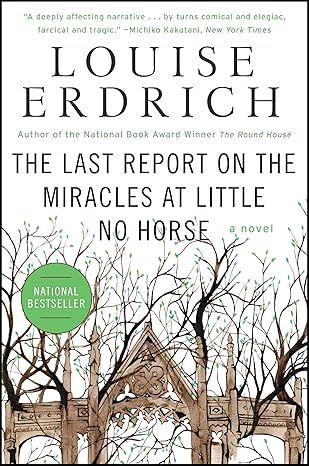
The Last Report on the Miracles at Little No Horse: A Novel (P.S.)
4.5
-
1,390
$1.51
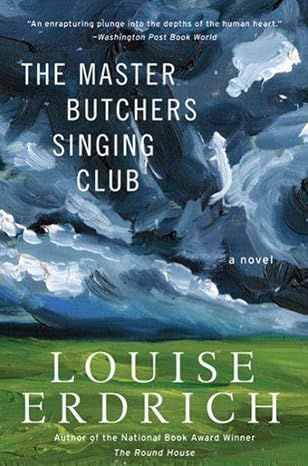
The Master Butchers Singing Club: A Novel
4.3
-
1,437
$1.96
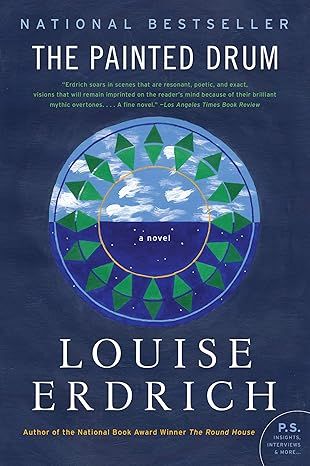
The Painted Drum: A Novel (P.S.)
4.4
-
963
$1.74
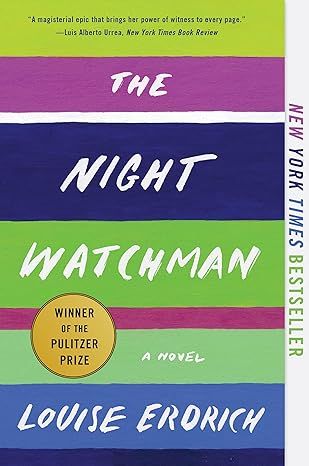
The Night Watchman: A Novel
4.4
-
21,822
$9.00
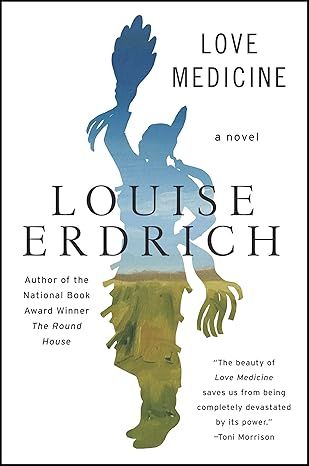
Love Medicine: Newly Revised Edition (P.S.)
4.3
-
1,019
$11.99
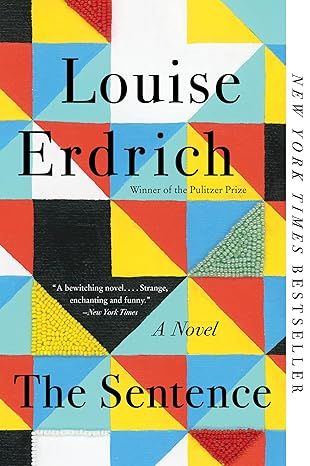
The Sentence: A Novel
4.3
-
8,450
$2.99
Best Sellers
View all
The Tuscan Child
4.2
-
100,022
$8.39

The Thursday Murder Club: A Novel (A Thursday Murder Club Mystery)
4.3
-
155,575
$6.33

Sapiens: A Brief History of Humankind
4.6
-
140,302
$13.49

The Butterfly Garden (The Collector, 1)
4.3
-
88,556
$9.59

Things We Hide from the Light (Knockemout Series, 2)
4.4
-
94,890
$11.66

The Last Thing He Told Me: A Novel
4.3
-
154,085
$2.99

The Perfect Marriage: A Completely Gripping Psychological Suspense
4.3
-
143,196
$9.47

The Coworker
4.1
-
80,003
$13.48

First Lie Wins: A Novel (Random House Large Print)
4.3
-
54,062
$14.99

Mile High (Windy City Series Book 1)
4.4
-
59,745
$16.19

Layla
4.2
-
107,613
$8.99

The Locked Door
4.4
-
94,673
$8.53
